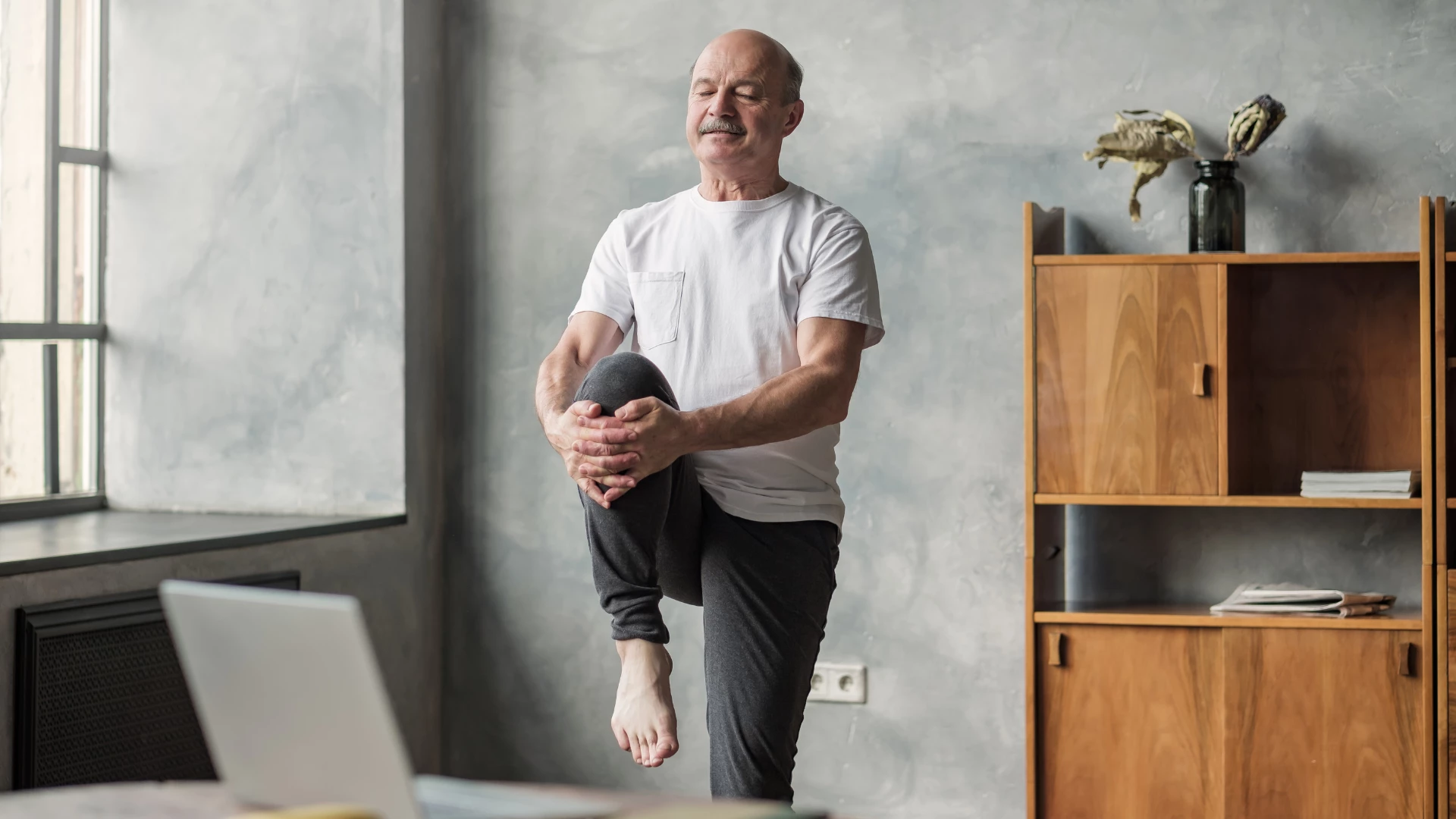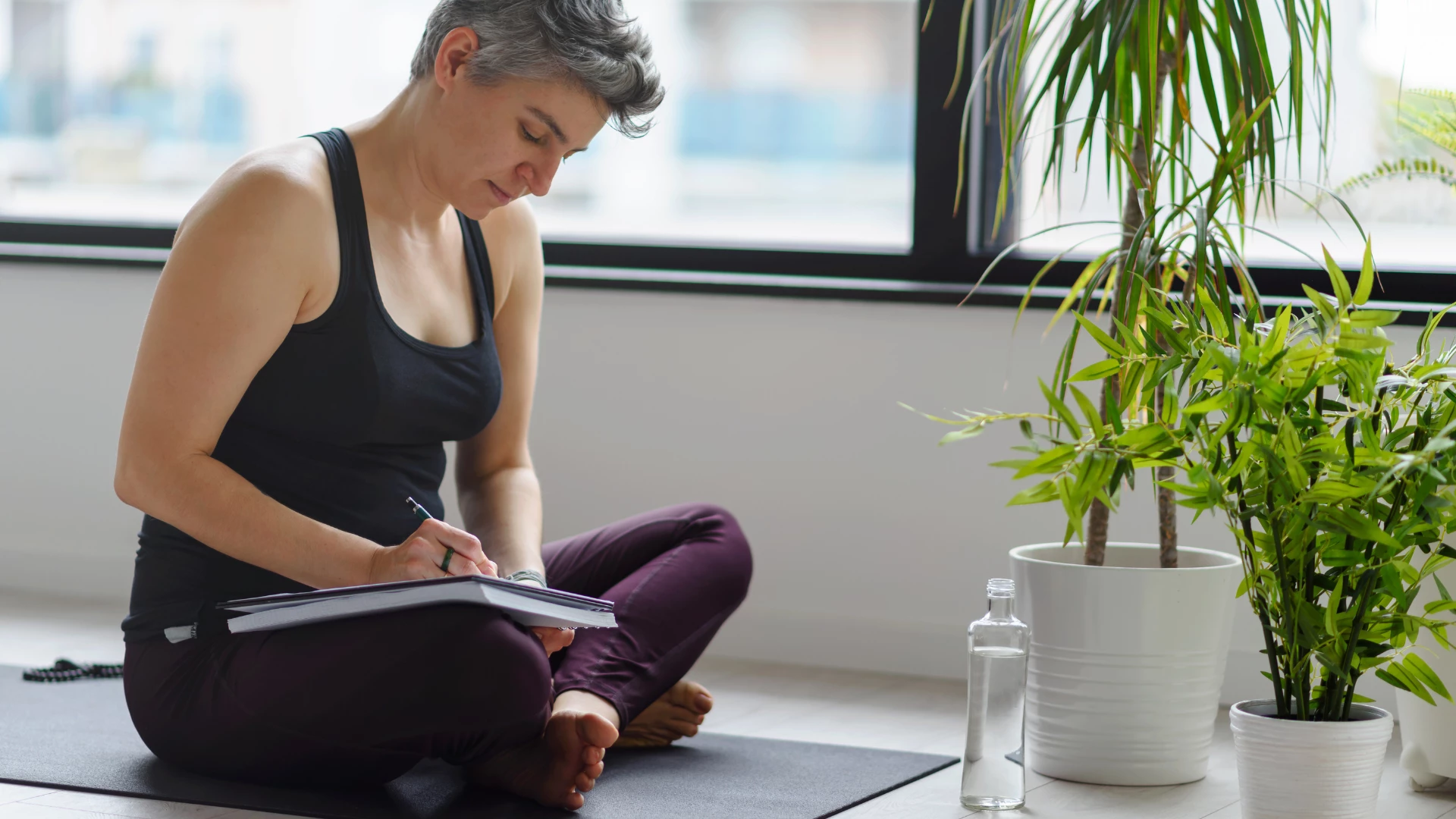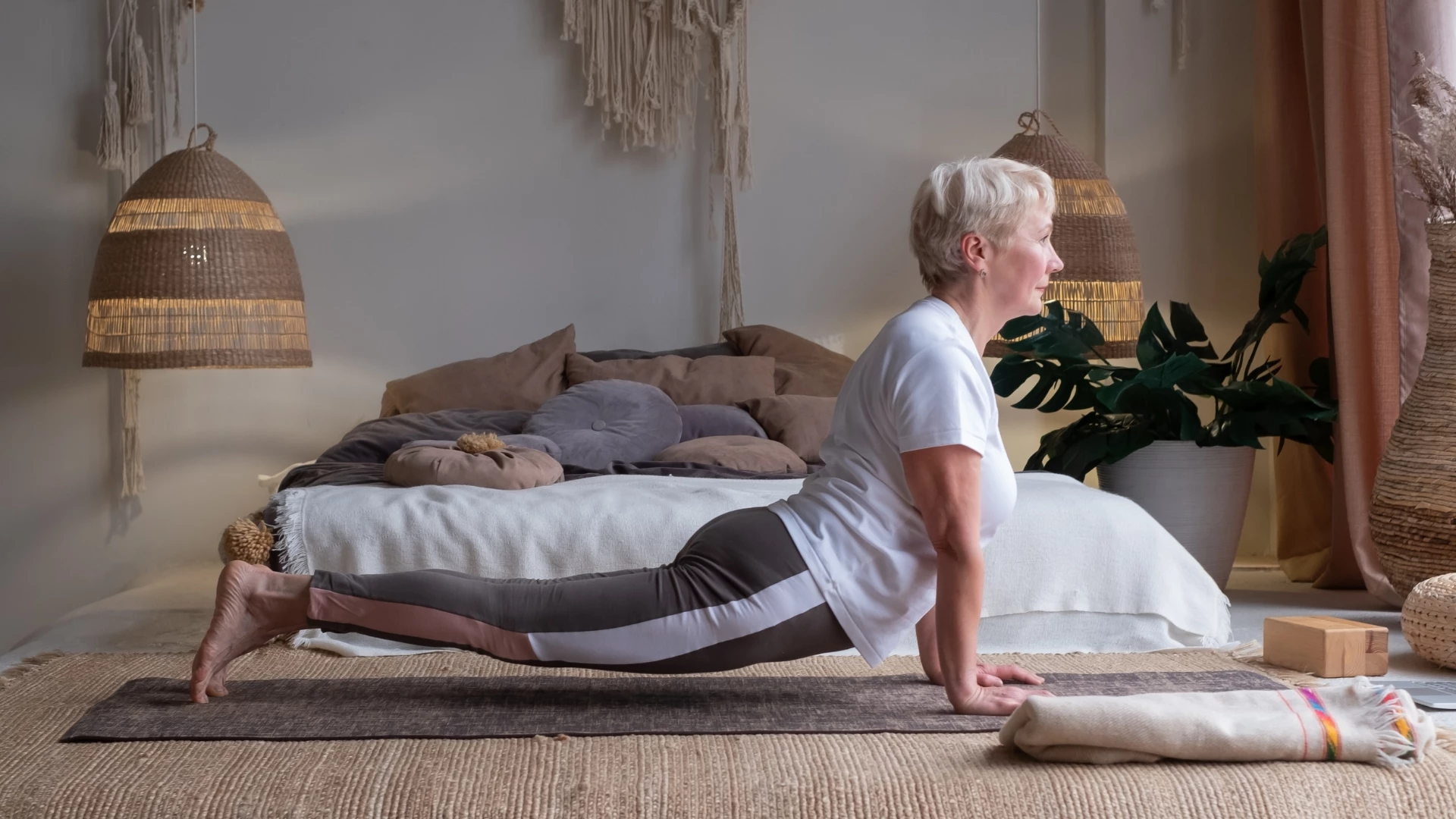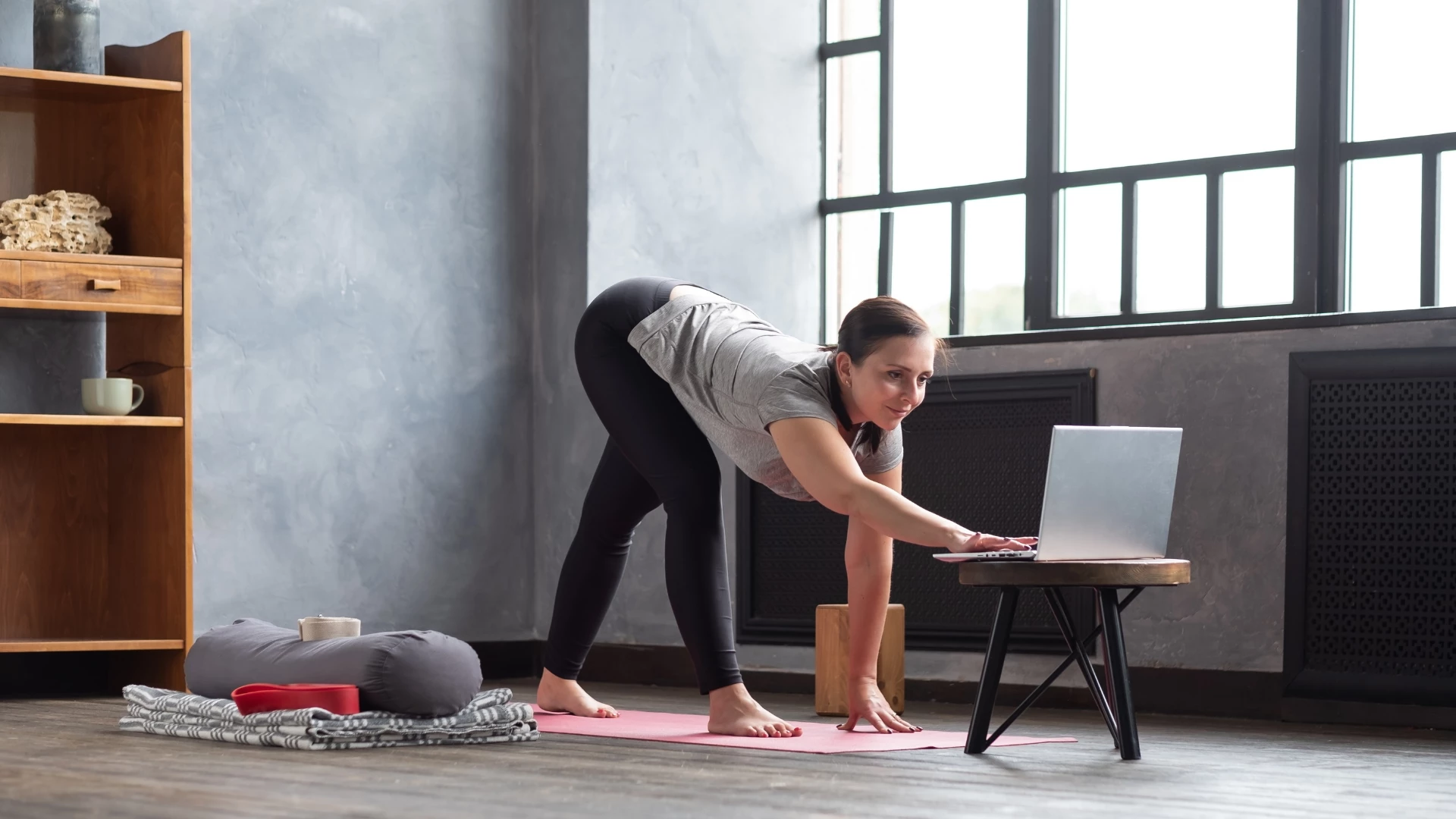Yoga Research: Yoga Improves Memory and Cognitive Performance, Study Shows

Article At A Glance
Can yoga improve memory and the symptoms of stress and anxiety? An exciting new study shows promising results. The research highlights the neurological effects of mind-body interventions like yoga to promote cognitive health and psychological well-being.
Sean Mullen wants more adults to go with the flow. The yoga flow that is.
Mullen, an associate professor in the Department of Kinesiology and Community Health at the University of Illinois Urbana-Champaign, collaborated with fellow Beckman Institute for Advanced Science and Technology researchers Madhura Phansikar, Neha Gothe, and Rosalba Hernandez to design a virtual eight-week moderate-intensity yoga program geared specifically toward full-time working adults experiencing symptoms of stress.

Madhura Phansikar, a doctoral student at the time of the research and an author of the paper. (image left)
The trial, which appeared in the Journal of Behavioral Medicine, led participants through three self-paced remote workouts each week and assessed levels of stress and anxiety in addition to executive functioning. The results showed overall decreases in stress and anxiety.
“There is some literature that has directly compared yoga to aerobic exercise, and we’ve known for quite a long time that aerobic exercise has benefits for the brain,” Mullen said. “Our research investigates complex movements—not just riding a bicycle or walking in a straight line—but multi-planar movements that require navigating one’s space a little differently and being conscious of movement, technique, and breathing.”
Can Yoga Improve Memory?

Enter the Sun Salutation (Surya Namaskar), a progression of yoga poses that emulates the rising and setting of the sun.
Self-paced instructional videos guided participants through Sun Salutations in the comfort of their own homes. Gradually, participants were encouraged to become more self-sufficient by completing the exercises independently.
“Our philosophy is to improve everyone’s confidence about the exercise in which they’re engaging,” Mullen said. “We start slow and incrementally progress.”
Researchers wanted to know if learning new chains of yoga sequences could improve working memory, similar to the brain benefits of learning a new dance.
“Having to move through multiple active postures, as opposed to static holds, should theoretically improve attentional abilities or inhibition control,” Mullen said. “Going through the flow could potentially improve spatial memory.”
The benefits to executive functioning observed in the study are reinforced by the literature, according to the researchers.
Virtual Yoga Classes Reduce Stress and Anxiety

The study also aimed to investigate individuals’ adherence to a virtual exercise program. While the study was initially designed for remote execution, it’s coincidental timing with the onset of the COVID-19 pandemic provided additional insight.
“The reductions in anxiety and improvements in short-term working memory suggest that it is possible to practice moderate-intensity yoga at home and still reap the benefits of reducing stress and anxiety without compromising safety,” Mullen said. “[The study] really became about promoting resilience in dark times.”
Another encouraging outcome was the participants’ overwhelmingly positive response.
“When participants are willing to recommend the program to friends and family, that’s great,” Mullen said. “To me, that suggests we were successful and that everyone involved had a good time.”
Lasting Impact: Making Virtual Yoga Classes Fun

Mullen’s lab will continue to test mind-body interventions and promote adherence to exercise by developing more technologies to gamify activities like yoga, kickboxing, and other movements that are more cognitively challenging than standard aerobic exercise. Their interventions are influenced by Mullen’s personal experience with flow-based training in spinning poi and martial arts like Filipino Kali and Brazilian Jiu Jitsu.
“We always try to keep it fun, keep it interesting, incorporate variety, and ensure our programs are as inclusive as possible,” Mullen said. “We tailor our programming so more people can take advantage, such as older adults or those with mobility limitations.”
Research Will Continue to Explore How Yoga Improves Memory
Phansikar, a doctoral student at the time of the research who participated in the aerial yoga sport of Mallakhamba at a national level, was especially encouraged by the results.
“Given my own personal background as a yoga practitioner and teacher, it was exciting to assess the efficacy of yoga interventions for promoting cognitive and psychological well-being,” she said.
Phansikar’s primary research interest lies in the neurological effects of mind-body interventions like yoga, and she will continue to develop scalable programs that can be deployed to large numbers of participants.
Also, read...
4 Ways Yoga Impacts the Aging Brain
3 Yoga Practices to Rewind the Clock on Brain Aging
5 Ways to Increase Brain Power
Related courses
Keys to Effective Yoga Teaching: The Most Important Takeaways from a Life of Teaching
Yoga and Detoxification: Tips for Stimulating Lymphatic Health
Free Download! Sacred Teaching, Simple Truths: Five Decades of Yoga Wisdom
- Additional contributors to the research included Neha Gothe, an associate professor in the Department of Kinesiology and Community Health, and Rosalba Hernandez, an associate professor in the School of Social Work.
- The paper titled “Feasibility and Impact of a Remote Moderate-intensity Yoga Intervention on Stress and Executive Functioning in Working Adults: A Randomized Controlled Trial” can be accessed online at https://doi.org/10.1007/s10865-022-00385-4
- Madhura Phansikar, Neha Gothe, Rosalba Hernandez, Sandraluz Lara‑Cinisomo, and Sean P. Mullen have no competing interests to declare that are relevant to the content of this article.
- Media contact: Jenna Kurtzweil at kurtzwe2@illinois.edu


